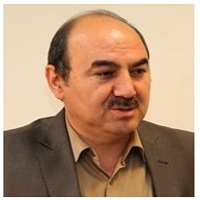Comparing Efficacy of Inference-Based Therapy, neurofeedback training and combine the two methods in treatment of patients with obsessive-compulsive disorder
In the past, obsessive-compulsive disorder was considered chronic and ineffective, but today it has changed significantly due to findings that support the effectiveness of cognitive-behavioral therapy. The purpose of this study was the Comparing Efficacy of Inference-Based Therapy, neurofeedback training and combine the two methods in treatment of patients with obsessive-compulsive disorder.
Methods and Materials:
This study was a survey and multi-group pre-test and post-test semi experimental design. In this study, 2550 subjects were selected by cluster sampling method from among teachers of Meshkinshahr city and1916 subjects completing the Yale-Brown obsessive-compulsive scale (YBOCS) and diagnostic interview, and in the second stage, 66 out of 153 subjects who had a higher score from the point of incision 20 in the obsessive-compulsory questionnaire, after the diagnostic interview, were randomly assigned to a control group and three experimental groups, and eventually The collected data were analyzed by using MANOVA with SPSS 18 software.
The results of the comparison of experimental and control groups showed that the severity of obsessive-compulsive disorder and its subscales (check, wash, repetition, and doubt) in the experimental groups significantly decreased compared to the control group. In general, the effectiveness of the three methods Therapy on the obsessive-compulsive variable and its subscales are confirmed in the post-test phase. The effect of this effect is between 35.3 to 79.6% and the difference in the post-test scores through three treatment groups. The results obtained from the paired comparisons According to the Bonferroni test, show that combination therapy of of Inference-Based Therapy and neurofeedback education in decrease the severity of obsessive-compulsive disorder is more effective than Inference-Based Therapy and it is more effective than neurofeedback education.
In this study, the combination treatment of Inference-Based Therapy and neurofeedback education in decrease the severity of obsessive-compulsive disorder is more effective than Inference-Based Therapy and it is more effective than neurofeedback education.
- حق عضویت دریافتی صرف حمایت از نشریات عضو و نگهداری، تکمیل و توسعه مگیران میشود.
- پرداخت حق اشتراک و دانلود مقالات اجازه بازنشر آن در سایر رسانههای چاپی و دیجیتال را به کاربر نمیدهد.


